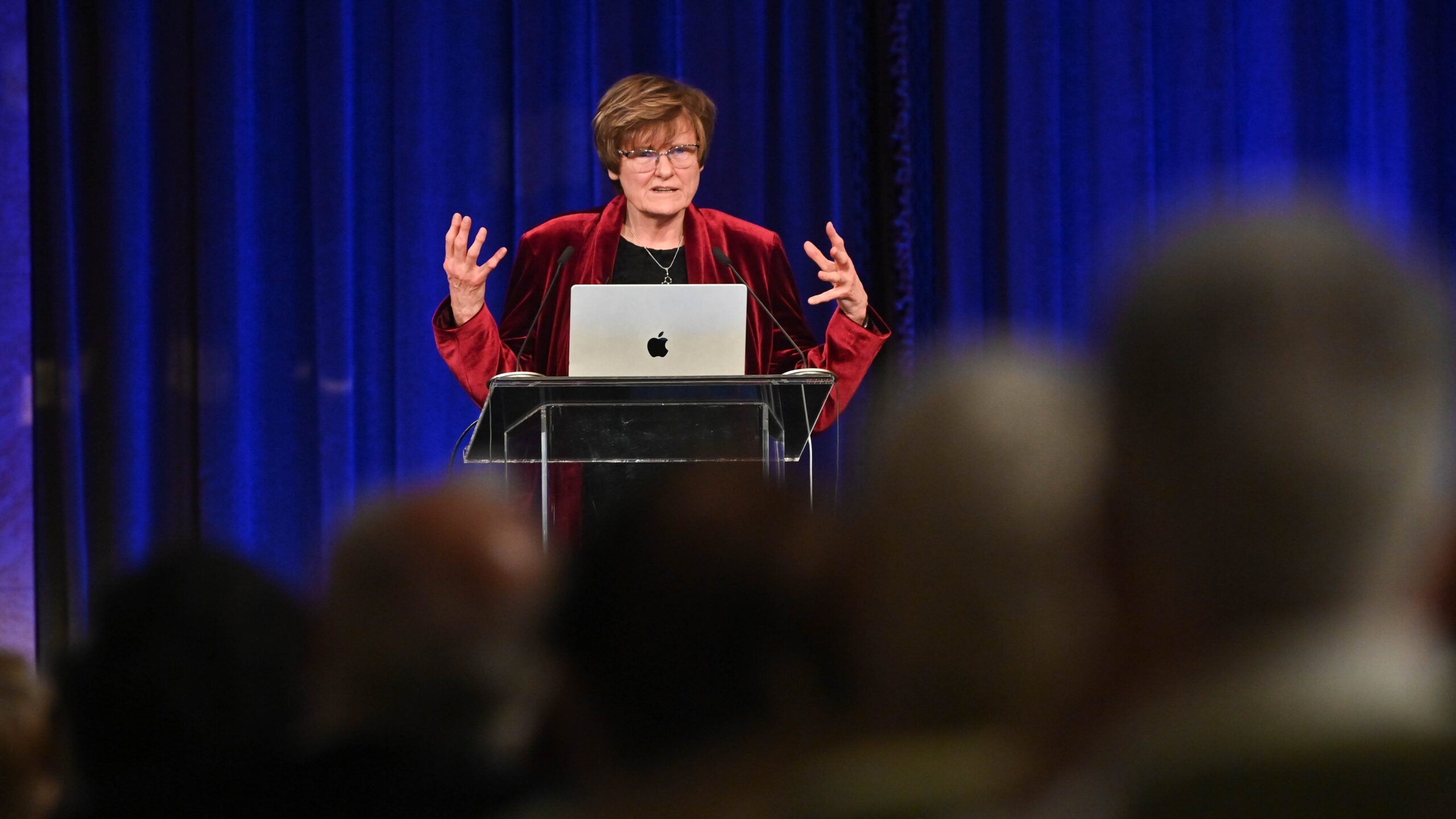‘It is essential to present scientific achievements to the public,’ Katalin Karikó declared on Wednesday at the University of Szeged’s (SZTE) Innovation Day. In her lecture, the Nobel laureate remarked, ‘Our task is to inform people, to inspire young people, because being a researcher, creating something new, and helping others is wonderful.’
Karikó explained that transforming a discovery from basic research into a product, like an mRNA-based vaccine, is a lengthy process. She stressed that society must be brought to accept the product, as the general public’s knowledge is often distant from that of the scientific community. She pointed out that those who gather their immunology knowledge from social media and spread misinformation about mRNA vaccines might not realize that they have received vaccines containing live virus and RNA as children for measles, mumps, and rubella. ‘We must explain these matters in simple terms,’ she said.
According to her, the most crucial factor is believing in oneself, although belief alone is insufficient—one must also gain experience, which often requires stepping outside one’s comfort zone. She illustrated this with numerous personal examples from her career.
Managing stress is vital in both academic and industrial sectors. ‘We must focus on areas where we can make a difference,’ she emphasized. The researcher believes that mental and physical resilience enable individuals to overcome the lows they may encounter. Karikó observed that a shift has occurred in research goals: while the aim was once to understand nature, the priority now often lies in publication, which brings recognition, grants, and overall progress. ‘If you have an idea, bring it to life,’ she stated firmly. Achieving this requires partners, and thus she highlighted the importance of personal connections and trust. She mentioned her former PhD colleague, János Ludwig, as an example. Though they had limited personal contact after the 1980s, they maintained their connection, and one of their joint publications from 1985 was among the three papers cited in her Nobel Prize award citation.
When asked about advice for young scientists, Karikó encouraged them to explore opportunities abroad to gain experience, whether in academia or industry. She also suggested that researchers—such as those at the Biological Research Centre in Szeged—should engage more actively in education.
During the event the SZTE innovation awards were also presented. In the student category, Adrienn Szirmai was recognized for her work on the simultaneous electrochemical conversion of carbon dioxide and glycerol, while Angelika Samu received an award for the most innovative PhD work on carbon dioxide reduction.
In the living natural sciences category, Professor Attila Hunyadi and Eszter Ducza were honoured for their research on natural ecdysteroid production and application. In the inanimate natural sciences category, András Sápi was awarded for his development of filaments for 3D printers, and Gergely Fodor received an award in the healthcare category for his design of custom airflow meters.
In the humanities and social sciences, István Harkai and Péter Mezei were recognized for their research on copyright challenges in the platform economy. Finally, in the organizational innovation category, Annamária Töreki received an award for her programme aimed at preventing burnout among healthcare workers.
Related articles:







